 Health
Health  Health
Health  History
History Top 10 Historical Disasters Caused by Someone Calling in Sick
 Animals
Animals 10 New Shark Secrets That Recently Dropped
 Movies and TV
Movies and TV 10 Forgotten Realities of Early Live Television Broadcasts
 Technology
Technology 10 Stopgap Technologies That Became Industry Standards
 Weird Stuff
Weird Stuff 10 Wild Facts About Taxidermy That You Probably Didn’t Know
 Travel
Travel 10 Beautiful Travel Destinations (That Will Kill You)
 Miscellaneous
Miscellaneous 10 Modern Marriage Rituals Born from Corporate Branding
 Weird Stuff
Weird Stuff Ten Bizarre Visions of 2026 from Fiction
 Weird Stuff
Weird Stuff The 10 Unluckiest Days from Around the World
 Health
Health 10 Everyday Activities That Secretly Alter Consciousness
 History
History Top 10 Historical Disasters Caused by Someone Calling in Sick
 Animals
Animals 10 New Shark Secrets That Recently Dropped
Who's Behind Listverse?

Jamie Frater
Head Editor
Jamie founded Listverse due to an insatiable desire to share fascinating, obscure, and bizarre facts. He has been a guest speaker on numerous national radio and television stations and is a five time published author.
More About Us Movies and TV
Movies and TV 10 Forgotten Realities of Early Live Television Broadcasts
 Technology
Technology 10 Stopgap Technologies That Became Industry Standards
 Weird Stuff
Weird Stuff 10 Wild Facts About Taxidermy That You Probably Didn’t Know
 Travel
Travel 10 Beautiful Travel Destinations (That Will Kill You)
 Miscellaneous
Miscellaneous 10 Modern Marriage Rituals Born from Corporate Branding
 Weird Stuff
Weird Stuff Ten Bizarre Visions of 2026 from Fiction
 Weird Stuff
Weird Stuff The 10 Unluckiest Days from Around the World
10 Glaring Examples Of News Reporting Gone Wrong
The rapid free-flow of information is a curse-pocked blessing. Media-induced muck-ups and outrages are virtually preordained as due diligence and restraint fall to the wayside in pursuit of being the first to break a story. But in a world where headlines can travel as far and fast as technology allows, even a simple underestimation of the public’s sensitivity to an issue can spark a caustic controversy.
10A Six-Year-Old News Story Almost Bankrupts United Airlines
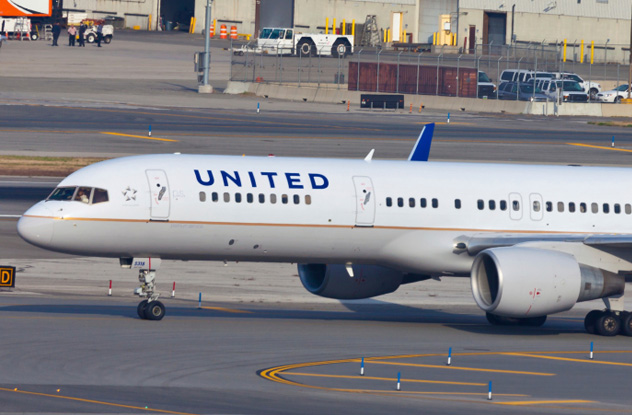
The stock market is a finicky, fickle animal that improves and implodes with each new financial forecast. Swiftness and accuracy in reporting is essential. A typo or wrongly worded description of changing conditions in an industry can precipitate a mad rush to buy or dump shares, crippling whole companies and economies.
In September 2008, a reporter for Miami-based Income Securities Advisors found a 2002 article about a financially moribund United Airlines filing for bankruptcy. However, the article itself was undated. As a result, the Google web crawler assigned it the date of the search, giving the impression that a half-dozen-year-old crisis was breaking news. The reporter then relayed the information to Bloomberg, a premier name in finance news, and as soon as the story went up, United Airlines’s stock price nosedived by 75 percent. Traders jettisoned 15 million shares, as the stunned company did its best to disabuse Bloomberg of the disastrous misconception.
To get things back on track and prevent a total corporate meltdown for an airline that had been doing fine before reports claimed otherwise, trading was halted for an hour to sort the problem out. With the crisis averted, one could only be left to wonder just how easily a single misguided headline could crater the global economy if left unchecked.
9A Poorly Translated Article Devalued The US Dollar

Guan Xiangdong, a tourism reporter for the China News Service, was tasked with filling in for her finance reporters that were on vacation in May 2005. Attempting to provide various perspectives on how an appreciation of China’s currency, the Renminbi, would affect the local economy, she pulled bits of from various media outlets to form her own collage of facts and opinions.
From there, a game of multilingual telephone commenced as the Communist Party’s official news source snatched up the article and cranked out a near-unreadable English version that could be interpreted as a confirmation of plans to appreciate the Renminbi, a move that would have weakened the dollar against Asian currencies. Bloomberg caught wind of the translation online and hastily spread the word that China’s currency was about to jump in value.
With lightning-quick reactivity, investors began dumping US dollars and buying everything from Renminbi to rupees in an avalanche of misinformed fervor. Within minutes, $2 billion had exchanged hands. But a bunch of hopeful traders were about to discover that they had monetarily shot themselves in the foot because Bloomberg had jumped the gun without confirming the facts.
8News Outlets Implicate Innocent People As Terrorists
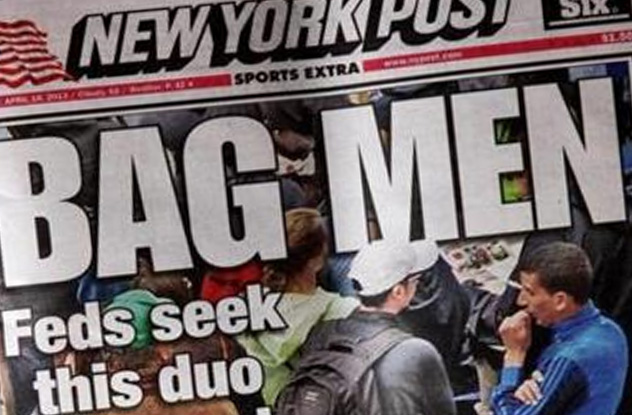
United States criminal courts are obligated to ensure fair trials for those suspected of wrongdoing. But the court of public opinion is far freer in its proceedings. That’s why it’s so potentially damaging when a person’s name gets dragged through the mud before all the facts are in and why it’s so deeply distressing when news reporters are the ones doing the uninformed mud-dragging. Reputations are destroyed, and harassment runs roughshod over restrained judgment.
Abu Bakhar Alam, 19, knows a bit about the power of blind allegations because in September 2014, Australian publications The Age and the Sydney Morning Herald downloaded an image of him from Facebook under the mistaken assumption that he was a dead terrorist. In a reckless effort to put a face to the name of a Muslim extremist shot in a violent tussle with police, the outlets downloaded a picture of the innocent Alam and ran it on the front page of their newspapers. Ironically, Alam’s whole family had fled Afghanistan to escape terrorists who had murdered their relatives, making the gaffe both grievous and offensive.
Predicaments like Alam’s are perfect fodder for lawsuits, which 16-year-old Salaheddin Barhoum and 24-year-old Yassine Zaimi understood when the pair sued the New York Post for unsubtly suggesting that they were the Boston Marathon bombers. In a jump to conclusions that could only be measured in miles, the Post published their images with the accusatory headline “Bag Men” after discovering that law enforcement wanted to question Barhoumi and Zami based on surveillance footage. It turned out that the duo was totally innocent, and the New Pork Post found itself on the paying end of a lawsuit that was settled for an undisclosed amount.
7Blindly Reporting A False Accusation Of Child Endangerment

Few crimes rival terrorism in emotional impact and reprehensibility, but wanton child neglect has a way of tapping into a public’s deepest wells of disdain. That’s why when news station KHOU accused Araceli Cisneros of leaving her two defenseless children to swelter in a car on a day measuring in at 32 degrees Celsius (90 °F) while she went to get a haircut, the public was irate. The stage for that rage was amplified when controversial show host Nancy Grace branded Cisneros unfit to raise a child, airing heartbreaking cell phone footage of people breaking the glass of the car door to rescue the trapped kids. That would all seem warranted were it not for the complicating detail that the story was an utter crock.
Cisneros was the victim of a dishonest witness looking to create a huge story at an innocent person’s expense. The mother didn’t abandon her offspring to bake like buns in an automotive oven to tend to cosmetic concerns. She’d actually accidentally locked her keys in the car and desperately begged for help. The people filmed rescuing her kids had arrived to the scene in response to Cisneros’s please for assistance. The news station would have discovered this reality had it not simply relayed the story without checking it for accuracy.
Branded as a child abuser on national TV and subjected to criticism that left her in fear for her safety, the wrongly maligned Cisneros filed a defamation lawsuit against KHOU in August 2014 seeking more than $200,000. Regardless of whether the suit ends up costing the station anything, KHOU’s headline-hungry recklessness suggests it has already bankrupted itself ethically.
6Compromising The Safety Of Two Convicted Murderers
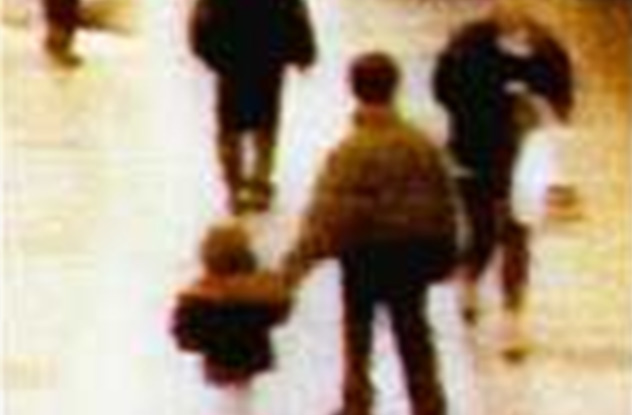
The media’s capacity to jeopardize people’s well-being isn’t limited to ignorantly impugning the innocent. If left to their own devices, newspapers can also imperil the guilty without thinking. That became expensively evident to Manchester Evening News.
The criminals in question were Jon Venables and Robert Thompson, who as 10-year-old boys ended the life of two-year-old James Bulger with unbridled sadism. The pair battered, stoned, and otherwise tortured the defenseless child to death before leaving him on a railroad track to be dismembered by a train. So when they were released nine years later, they were obvious targets for a vengeful public—including Bulger’s father, who had threatened the killers’ lives. To prevent vigilante retribution, a UK court issued a protective order preventing the media from reporting on the new identities or whereabouts of Venables and Thompson, who’d legally changed their names for safety reasons.
The Manchester Evening News, however, breached the terms of the court order when it provided a rough approximation of where the newly released killers were staying. According to the news editor, the staff believed the article hadn’t violated the injunction because it intentionally lied about the distance of the killers’ whereabouts from two other known locations and suspected that the pair had relocated anyway. According to Dame Elizabeth Butler-Sloss, president of the High Court Family Division, the newspaper’s description was too close for comfort to prevent inferences. Accordingly, she fined the newspaper £150,000 for its dangerous carelessness.
5A Single Tweet Derails A Murder Trial
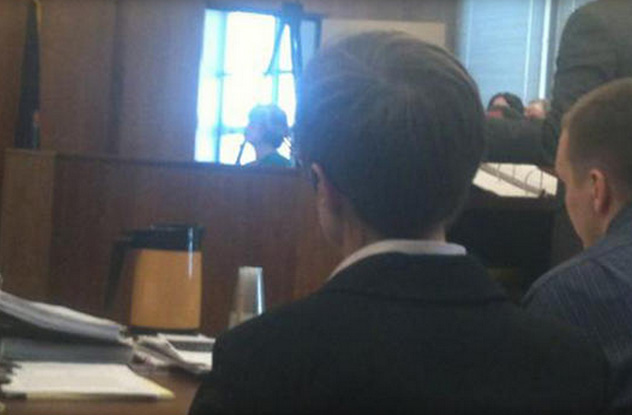
On an April day in 2012, newspaper reporter Ann Marie Bush sat in a courtroom in Topeka, Kansas, primed to relay the proceedings of a serious case. After more than a year of investigation and preparation, Austin Tabor was finally to stand trial for the 2010 murder of Matthew Mitchell, and Bush’s mission as a member of the press was clear: capture as much of the scene as possible without compromising the case. That included not photographing the jurors. This rule, if violated, would torpedo the trial.
Undeterred by legal constraints, Bush tried to snap a picture of the courtroom on her smartphone to share with the public via Twitter. The glare of sunlight through a window obscured her view of a juror, but it didn’t obscure the camera lens’s view of him. That brief mistake resulted in a mistrial that threatened to throw the entire case. Scheduling conflicts prevented proceedings from resuming within the 90-day limit for pursuing charges. Bush’s single ill-advised tweet almost let an alleged murderer walk.
Luckily, justice prevailed, and six months after the initial mistrial (twice the official limit) Tabor was once more brought to trial where he pleaded guilty to murder. But the additional emotional and financial burden of delaying a murder trial by half a year could have been averted, had an overeager reporter simply exercised restraint.
4A UK Paper’s Controversial World Cup

Much like teatime and dry wit, soccer is undeniably loved throughout the UK. So when England got a chance at World Cup glory in 2014, every bit of praise and attention should have been eagerly lapped up by the general public. But when Labour Party Leader Ed Miliband posed with a Sunday paper touting the English team’s accomplishment, he incurred the incandescent ire of Liverpool’s residents and political leaders, one of whom even openly contemplated resigning. What about the adulation lit Liverpool alight with rage? It came from The Sun.
For more than two decades, UK tabloid The Sun has been an anathema to the people of Liverpool, owing to its controversial coverage of the 1989 Hillsborough disaster, during which nearly 100 soccer fans were crushed against a security barrier at Liverpool’s Hillsborough stadium. Going on the accounts of dissembling policemen looking to cover up inadequate safety measures, The Sun ran an article accusing the fans of stealing from and urinating on the casualties of the crush, casting these accounts as “The Truth” in an inflammatorily large headline. It was the bitterest insult for a city that was misleadingly maligned in the midst of tragedy.
So when The Sun distributed 22 million copies of its Sunday paper in honor of England’s championship hopes, mailmen throughout Liverpool refused to deliver it, residents burned it, and Ed Miliband infuriated a whole city by having himself photographed with it. The Sun had opened old wounds and incidentally set the stage for political bickering because of a monumental mistake that has proven incredibly difficult to live down.
3Off-The-Cuff Advice Strands People In Traffic During A Tornado
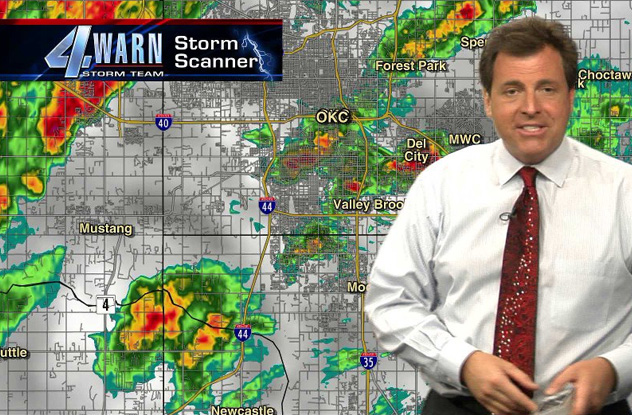
For over a decade, meteorologist Mike Morgan has helped the tornado-terrorized residents of Oklahoma brave violent cyclones that periodically batter the state. An 11-time broadcast award winner, Morgan was an adept weatherman whose words carried weight for those who tuned in for expert advice during inclement weather. So when the widest twister ever recorded in the US bore down on the Sooner State in May 2013, Oklahomans likely expected nothing but the best guidance from the decorated broadcaster. Unfortunately, they were wrong.
After following the standard protocol of instructing people to ensconce themselves in a storm cellar or other well-built, preferably subterranean structure, Morgan improvised further advice. In a gesture described as “irresponsible” and “unconscionable” by a research professor at Texas Tech’s National Wind Institute, Morgan repeatedly instructed Oklahomans to flee the state altogether. Joined by a bevy of workers that were let off of work to escape the tornado, drivers who had planned to exit Oklahoma found themselves stranded in automobiles rather than hiding in sturdy buildings when the twister struck. According to medical reports, some drivers were tossed about in their cars or sucked from their vehicles completely by the paroxysmal wind.
We mustn’t firmly blame Morgan’s advice for any of the roadway deaths that occurred. But what cannot be disputed is that several Oklahomans who followed his meteorologically unorthodox suggestion found themselves sitting terrified in wind-whipped vehicles at the mercy of a hellacious twister. That in itself is a calamity.
2The New York Post Facilitates Cheating On A Statewide Test

Back in 1989, popular tabloid The New York Post dedicated itself to exposing the rampant perfidy surrounding a statewide chemistry exam. Students had obtained foreknowledge of the test answers and were exchanging them. In an attempt to put the kibosh on the illicit operation, the Post posted the answer key, bulletproof evidence of student chicanery. Unfortunately, no one at the New York Post appeared to have considered the ramifications of making test answers even more readily available to the unscrupulous pupils who had been disseminating ill-gotten exam contents. Naturally, they seized on the Post’s disclosure as an opportunity to begin photocopying and selling the printed answer key.
The New York State Education Commission, previously committed to administering the test to the more than 80,000 students who rely on it as a partial determinant of college prospects, decided that the test sheet free-for-all that ensued was grounds to cancel the chemistry test altogether. As a result, the state was forced to shell out $250,000 to develop a replacement exam, forcing thousands of high schoolers into educational limbo. On the bright side, at least the students’ cheating went to waste.
1A Baseless Terrorism Scare On 9/11

On September 11, 2009, the US Coast Guard held an unannounced training exercise on the Potomac River near the Pentagon. On any other day, this run-of-the-mill routine might have been met with muted indifference. But several factors came together to create a collage of panicked citizens, disrupted travel plans, and a mad dash by the FBI to the site of the training. And it appears to be the fault of misconstrued onomatopoeia and a failure to communicate.
A bit of context is in order. The Coast Guard communicates over a radio frequency accessible to news outlets. So when it staged a conflict with an imaginary security threat, the chances of transmissions being picked up by a reporter were already significant. This faux encounter was also occurring on the eighth anniversary of America’s most infamous attacks, so the odds that a member of the media would take note of the exchange became elephantine. Even worse, the Coast Guard appeared to have scuttled its typical protocol of announcing when its transmissions are part of a training exercise.
With the situation primed for overreaction, a member of the CNN news team purportedly misinterpreted the utterance of “bang, bang, bang” as an indication that shots had been fired. And after failing to get a reply from the Coast Guard after inquiring about the message, CNN reported possible gunshots near the Pentagon, and other media outlets followed suit. The news broke as President Barack Obama was reading the names of the thousands lost in the 2001 attacks, and for a brief period, the country was plunged into a panic.
The misunderstanding was soon uncovered but not before flights had been delayed and the FBI were dispatched to dispose of a phantom terrorist. For its overzealousness, CNN took tremendous flak from the White House. So while some say it’s better to be safe than sorry, CNN learned the valuable lesson that one can sometimes feel sorry for being overly safe.








